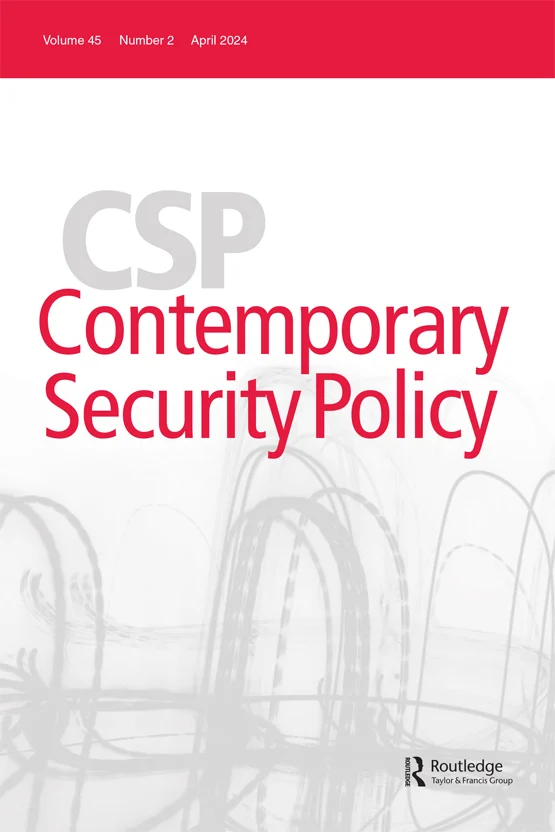Addressing the security needs of adolescent girls in protracted crises: Inclusive, responsive, and effective?
IF 5
1区 社会学
Q1 INTERNATIONAL RELATIONS
引用次数: 3
Abstract
ABSTRACT Adolescent girls face significant and often unique forms of insecurity in protracted crises. Yet, their specific needs tend to be overlooked by international agencies, and they are rarely consulted as programs are developed and implemented. Drawing from field research conducted in four crisis contexts—Lake Chad (Niger, Nigeria, and Cameroon), South Sudan and Uganda, Lebanon (Beirut), and Bangladesh (Cox’s Bazar)—this article explores the experiences of insecurity that adolescent girls face in crisis contexts, and the extent to which responses to their needs are inclusive, responsive, and effective. Employing literature from inclusive peacebuilding, the article argues that marginalizing adolescent girls in the development and implementation of programs compromises the ability for such programs to be responsive to their needs. Moreover, it misses the opportunity to employ their skills, knowledge, and strengths to build resilience and security within their communities.解决长期危机中少女的安全需求:包容、积极响应和有效?
在旷日持久的危机中,青春期女孩面临着重大且往往是独特形式的不安全感。然而,国际机构往往忽视了他们的具体需求,在制定和实施方案时很少征求他们的意见。根据在乍得湖(尼日尔、尼日利亚和喀麦隆)、南苏丹和乌干达、黎巴嫩(贝鲁特)和孟加拉国(考克斯巴扎尔)四个危机背景下进行的实地研究,本文探讨了青春期女孩在危机背景下面临的不安全体验,以及对她们的需求做出包容、反应迅速和有效的回应的程度。本文引用了包容性和平建设的文献,认为在项目的制定和实施中将少女边缘化会损害这些项目满足她们需求的能力。此外,他们失去了利用他们的技能、知识和优势在社区内建立复原力和安全的机会。
本文章由计算机程序翻译,如有差异,请以英文原文为准。
求助全文
约1分钟内获得全文
求助全文
来源期刊

Contemporary Security Policy
Multiple-
CiteScore
14.60
自引率
6.80%
发文量
22
期刊介绍:
One of the oldest peer-reviewed journals in international conflict and security, Contemporary Security Policy promotes theoretically-based research on policy problems of armed conflict, intervention and conflict resolution. Since it first appeared in 1980, CSP has established its unique place as a meeting ground for research at the nexus of theory and policy.
Spanning the gap between academic and policy approaches, CSP offers policy analysts a place to pursue fundamental issues, and academic writers a venue for addressing policy. Major fields of concern include:
War and armed conflict
Peacekeeping
Conflict resolution
Arms control and disarmament
Defense policy
Strategic culture
International institutions.
CSP is committed to a broad range of intellectual perspectives. Articles promote new analytical approaches, iconoclastic interpretations and previously overlooked perspectives. Its pages encourage novel contributions and outlooks, not particular methodologies or policy goals. Its geographical scope is worldwide and includes security challenges in Europe, Africa, the Middle-East and Asia. Authors are encouraged to examine established priorities in innovative ways and to apply traditional methods to new problems.
 求助内容:
求助内容: 应助结果提醒方式:
应助结果提醒方式:


